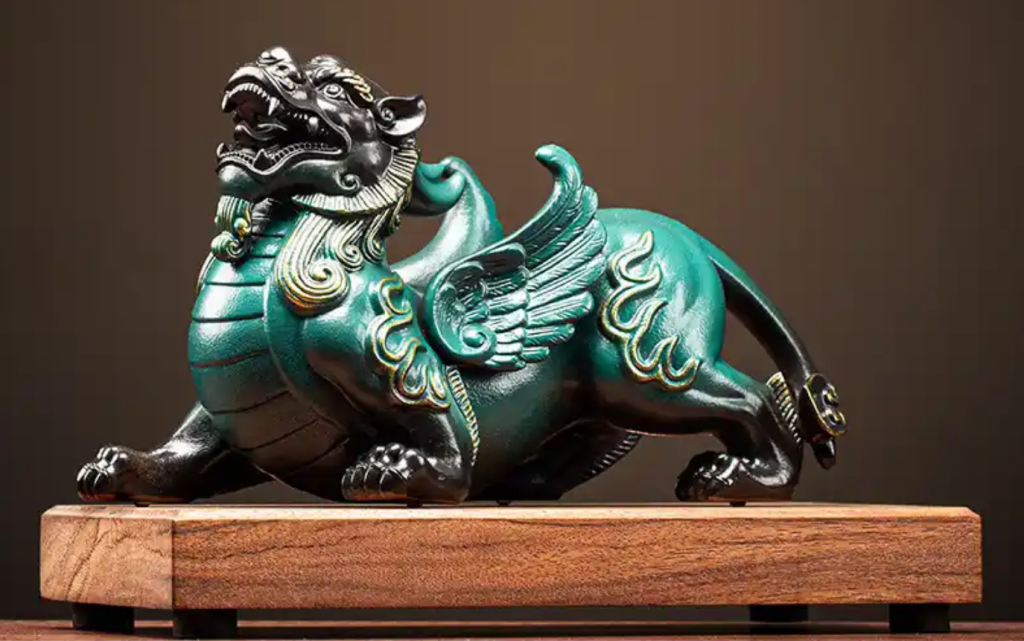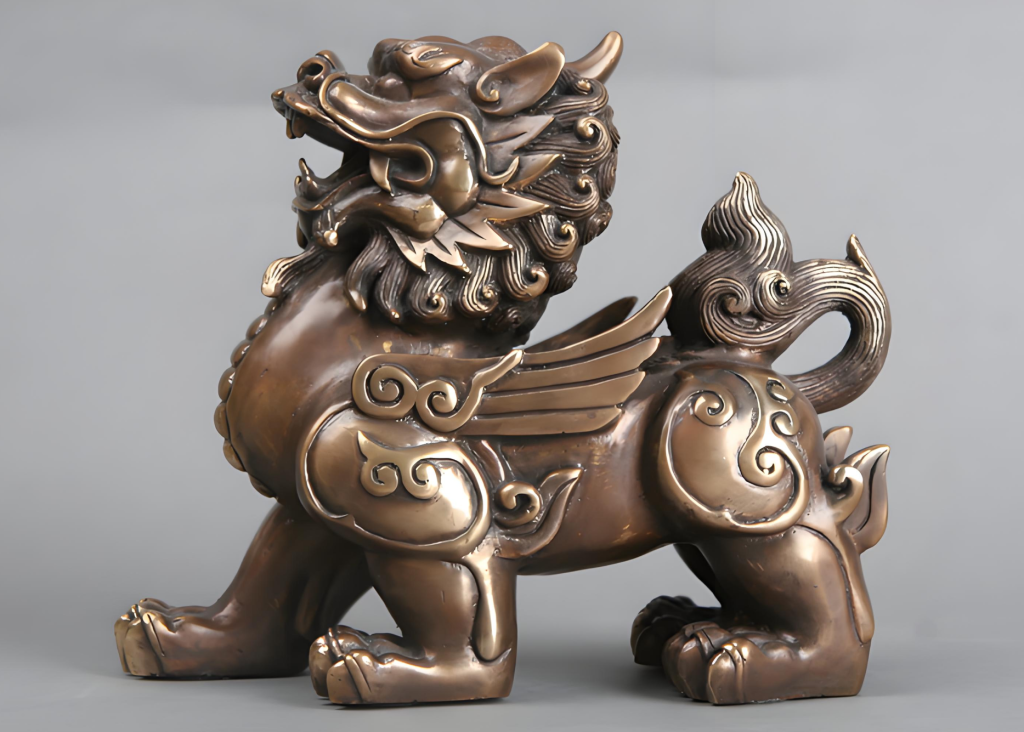
Pixiu is an auspicious beast in ancient Chinese mythology, believed to be the ninth son of the Dragon King. Resembling a lion or tiger, it has a single or double horn, scaled armor, and no anus—symbolizing the ability to accumulate wealth without leakage. According to the Classic of Mountains and Seas, Pixiu assisted the Yellow Emperor in defeating the rebel Chi You. For its valor, it was bestowed the title “Celestial Fortune Beast,” tasked with attracting wealth and warding off evil.
Pixiu’s design blends a lion’s fierceness with a dragon’s nobility:
- Single-horned (Tiānlù): Focuses on wealth attraction, often worshipped by merchants.
- Double-horned (Bìxié): Prioritizes protection, used in Feng Shui decor.
- No anus: Represents the unidirectional flow of fortune, earning it the nickname “Wealth Devourer.”
- Wealth Magnet: Jade Pixiu pendants or golden statues are favored by entrepreneurs to gather prosperity.
- Evil Warder: Its fierce appearance is thought to repel negative energy and safeguard homes.
- Career Success: Ancient officials believed Pixiu helped them “secure official salaries” (symbolized by its closed mouth).
Today, Pixiu remains popular in:
- Feng Shui: Placed facing the entrance to “devour wealth”; avoided near toilets/mirrors.
- Jewelry: Obsidian Pixiu bracelets combine style and protection.
- Finance: A Pixiu statue stands at Hong Kong’s stock exchange, symbolizing “bull markets only.”
Legend says Emperor Qianlong dreamed of a Pixiu carrying gold ingots. The next day, he received a jade Pixiu tribute from Yunnan. Subsequently, the Qing dynasty’s treasury flourished, cementing Pixiu’s status as the “Imperial Wealth Beast.“
